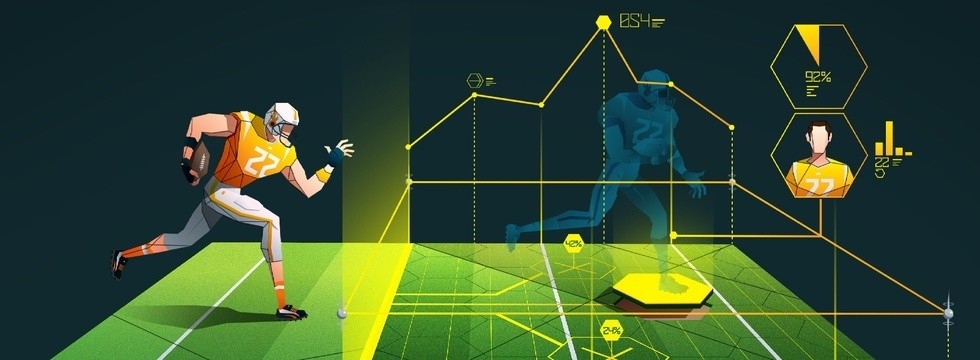Precision Metrics: Optimizing Performance with Sports Biometrics Tracking
In the ever-evolving landscape of sports, the integration of biometrics tracking has become a game-changer, offering athletes and coaches unparalleled insights into performance. Let’s delve into the world of sports biometrics tracking, exploring how this technology is revolutionizing training, enhancing recovery, and unlocking the full potential of athletes.
The Power of Data in Sports: Introduction to Biometrics Tracking
Sports biometrics tracking involves the use of advanced technologies to collect and analyze physiological data from athletes in real-time. Parameters such as heart rate, oxygen levels, body temperature, and more are measured to provide a comprehensive understanding of an athlete’s physical condition during training and competition. This wealth of data empowers athletes and coaches to make informed decisions for optimizing performance.
Real-Time Monitoring for Performance Enhancement: Breaking Barriers
One of the key advantages of sports biometrics tracking is the ability to monitor athletes in real-time. Coaches can receive immediate feedback on an athlete’s physiological responses, enabling them to make quick adjustments to training regimens. This real-time monitoring is instrumental in breaking performance barriers, allowing for precise adjustments to optimize training intensity and duration.
Personalized Training Programs: Tailoring Workouts to Individual Needs
Sports biometrics tracking facilitates the creation of personalized training programs based on individual physiological responses. By analyzing biometric data, coaches can tailor workouts to match an athlete’s specific needs and capabilities. This personalized approach maximizes training efficiency, minimizes the risk of overtraining, and helps athletes reach their peak performance levels in a targeted and sustainable manner.
Injury Prevention and Early Detection: Mitigating Risks
Biometrics tracking contributes significantly to injury prevention by detecting early signs of physical stress or fatigue. Changes in heart rate variability, for example, can signal potential risks before they escalate into injuries. By identifying these indicators early on, coaches and medical professionals can intervene with targeted interventions, such as modified training or focused recovery strategies, reducing the likelihood of injuries.
Optimizing Recovery with Biometrics Data: Post-Training Insights
Recovery is a critical aspect of athletic performance, and sports biometrics tracking extends its benefits beyond training sessions. By analyzing post-training biometric data, coaches can gain insights into an athlete’s recovery status. This information guides the implementation of tailored recovery protocols, including nutrition, hydration, and rest, ensuring that athletes are adequately prepared for subsequent training sessions and competitions.
Sleep Tracking for Performance Enhancement: Prioritizing Rest
Quality sleep is paramount for athletic performance, and biometrics tracking extends its reach to monitor sleep patterns. By tracking sleep duration, sleep cycles, and overall sleep quality, coaches can assess an athlete’s restorative sleep. This information aids in optimizing sleep hygiene, identifying potential sleep-related issues, and ensuring athletes prioritize adequate rest for peak performance.
Enhancing Endurance Training: Cardiovascular Insights
Biometrics tracking provides valuable insights into cardiovascular health, especially during endurance training. Monitoring metrics like heart rate and oxygen consumption helps coaches tailor endurance workouts to challenge and improve an athlete’s cardiovascular system. This precision in training contributes to enhanced endurance levels, stamina, and overall cardiovascular fitness.
Mind-Body Connection: Emotional and Mental Well-being
Beyond physical parameters, sports biometrics tracking recognizes the importance of the mind-body connection. Monitoring emotional and mental well-being through biometrics data, such as stress levels and mood, provides a holistic view of an athlete’s overall readiness. Coaches can incorporate strategies to manage stress, enhance focus, and support mental resilience for peak performance.
The Future of Athletic Performance: Integration of Biometrics Technology
As technology continues to advance, the future of athletic performance is intricately tied to the further integration of biometrics technology. Wearable devices, smart fabrics, and continuous innovations in sensors will refine the precision and scope of biometrics tracking. This ongoing evolution promises even more sophisticated insights, empowering athletes and coaches to push the boundaries of human performance.
To explore the transformative impact of sports biometrics tracking, visit Sports biometrics tracking and unlock the potential of precision metrics in optimizing athletic performance.




